7 start with N start with N
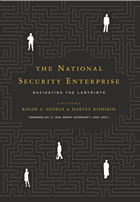
Recent breakdowns in American national security have exposed the weaknesses of the nation’s vast overlapping security and foreign policy bureaucracy and the often dysfunctional interagency process. In the literature of national security studies, however, surprisingly little attention is given to the specific dynamics or underlying organizational cultures that often drive the bureaucratic politics of U.S. security policy.
The National Security Enterprise offers a broad overview and analysis of the many government agencies involved in national security issues, the interagency process, Congressional checks and balances, and the influence of private sector organizations. The chapters cover the National Security Council, the Departments of Defense and State, the Office of the Director of National Intelligence, the Central Intelligence Agency, the Federal Bureau of Investigation, the Department of Homeland Security, and the Office of Management and Budget. The book also focuses on the roles of Congress, the Supreme Court, and outside players in the national security process like the media, think tanks, and lobbyists. Each chapter details the organizational culture and personality of these institutions so that readers can better understand the mindsets that drive these organizations and their roles in the policy process.
Many of the contributors to this volume are long-time practitioners who have spent most of their careers working for these organizations. As such, they offer unique insights into how diplomats, military officers, civilian analysts, spies, and law enforcement officials are distinct breeds of policymakers and political actors. To illustrate how different agencies can behave in the face of a common challenge, contributors reflect in detail on their respective agency’s behavior during the Iraq War.
This impressive volume is suitable for academic studies at both the undergraduate and graduate level; ideal for U.S. government, military, and national security training programs; and useful for practitioners and specialists in national security studies.

This second edition of The National Security Enterprise provides practitioners’ insights into the operation, missions, and organizational cultures of the principal national security agencies and other institutions that shape the US national security decision-making process. Unlike some textbooks on American foreign policy, it offers analysis from insiders who have worked at the National Security Council, the State and Defense Departments, the intelligence community, and the other critical government entities. The book explains how organizational missions and cultures create the labyrinth in which a coherent national security policy must be fashioned. Understanding and appreciating these organizations and their cultures is essential for formulating and implementing it. Taking into account the changes introduced by the Obama administration, the second edition includes four new or entirely revised chapters (Congress, Department of Homeland Security, Treasury, and USAID) and updates to the text throughout. It covers changes instituted since the first edition was published in 2011, implications of the government campaign to prosecute leaks, and lessons learned from more than a decade of war in Afghanistan and Iraq. This up-to-date book will appeal to students of US national security and foreign policy as well as career policymakers.
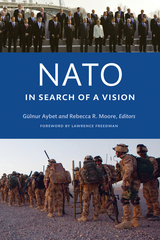
As the NATO Alliance enters its seventh decade, it finds itself involved in an array of military missions ranging from Afghanistan to Kosovo to Sudan. It also stands at the center of a host of regional and global partnerships. Yet, NATO has still to articulate a grand strategic vision designed to determine how, when, and where its capabilities should be used, the values underpinning its new missions, and its relationship to other international actors such as the European Union and the United Nations.
The drafting of a new strategic concept, begun during NATO’s 60th anniversary summit, presents an opportunity to shape a new transatlantic vision that is anchored in the liberal democratic principles so crucial to NATO’s successes during its Cold War years. Furthermore, that vision should be focused on equipping the Alliance to anticipate and address the increasingly global and less predictable threats of the post-9/11 world.
This volume brings together scholars and policy experts from both sides of the Atlantic to examine the key issues that NATO must address in formulating a new strategic vision. With thoughtful and reasoned analysis, it offers both an assessment of NATO’s recent evolution and an analysis of where the Alliance must go if it is to remain relevant in the twenty-first century.
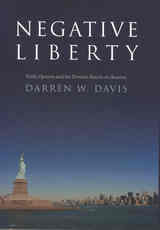
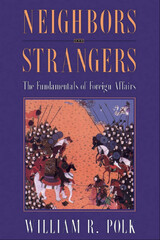
Indeed, going deeper into the human experience, Polk documents "fear of the foreigner" as a visceral response so deep-seated and so pervasive that it transcends human memory, individual experience and even logical analysis. More generally, he shows that the tension created by having to live as neighbors with those who, in the definition of contemporaries, were irredeemably alien has been one of the major causes of the rise of civilizations.
Accessible and engaging, Neighbors and Strangers is a revelatory look at how foreign affairs are a profound reflection of human nature.
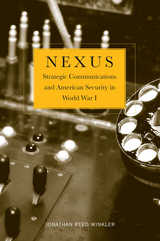
In an illuminating study that blends diplomatic, military, technology, and business history, Jonathan Reed Winkler shows how U.S. officials during World War I discovered the enormous value of global communications.
At the outbreak of war in 1914, British control of the cable network affected the Americans’ ability to communicate internationally, and the development of radio worried the Navy about hemispheric security. The benefits of a U.S. network became evident during the war, especially in the gathering of intelligence. This led to the creation of a peacetime intelligence operation, later termed the “Black Chamber,” that was the forerunner of the National Security Agency.
After the war, U.S. companies worked to expand network service around the world but faced industrial limitations. Focused on security concerns, the Wilson administration objected to any collaboration with British companies that might alleviate this problem. Indeed, they went so far as to create a radio monopoly and use warships to block the landing of a cable at Miami.
These efforts set important precedents for later developments in telephony, shortwave radio, satellites—even the internet. In this absorbing history, Winkler sheds light on the early stages of the global infrastructure that helped launch the United States as the predominant power of the century.

Every day, Americans surrender their private information to entities claiming to have their best interests in mind. This trade-off has long been taken for granted, but the extent of its nefariousness has recently become much clearer. As None of Your Damn Business reveals, the problem is not so much that data will be used in ways we don’t want, but rather how willing we have been to have our information used, abused, and sold right back to us. In this startling book, Lawrence Cappello targets moments from the past 130 years of US history when privacy was central to battles over journalistic freedom, national security, surveillance, big data, and reproductive rights. As he makes dismayingly clear, Americans have had numerous opportunities to protect the public good while simultaneously safeguarding our information, and we’ve squandered them every time. None of Your Damn Business is a rich and provocative survey of an alarming topic that grows only more relevant with each fresh outrage of trust betrayed.
READERS
Browse our collection.
PUBLISHERS
See BiblioVault's publisher services.
STUDENT SERVICES
Files for college accessibility offices.
UChicago Accessibility Resources
home | accessibility | search | about | contact us
BiblioVault ® 2001 - 2024
The University of Chicago Press









